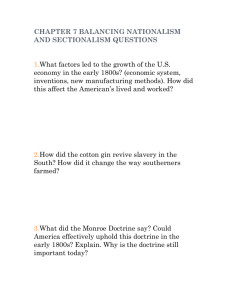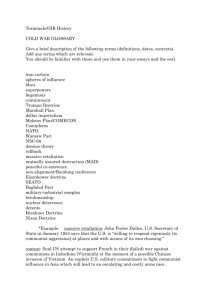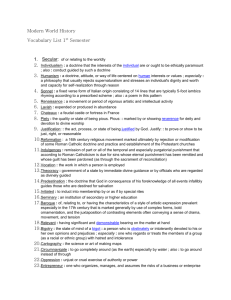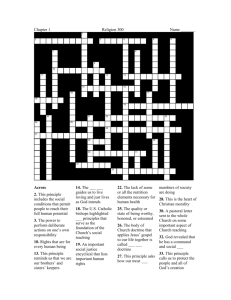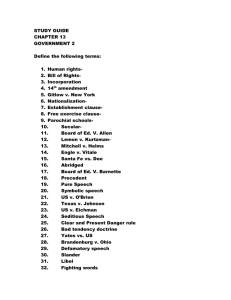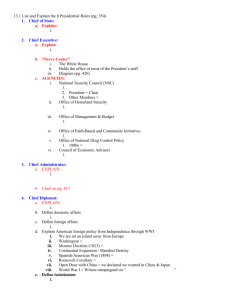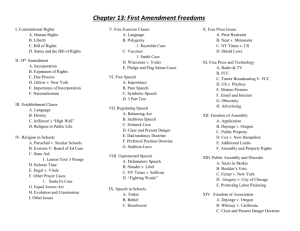CONSTITUTIONAL LAW 1 What is the Constitution?
advertisement
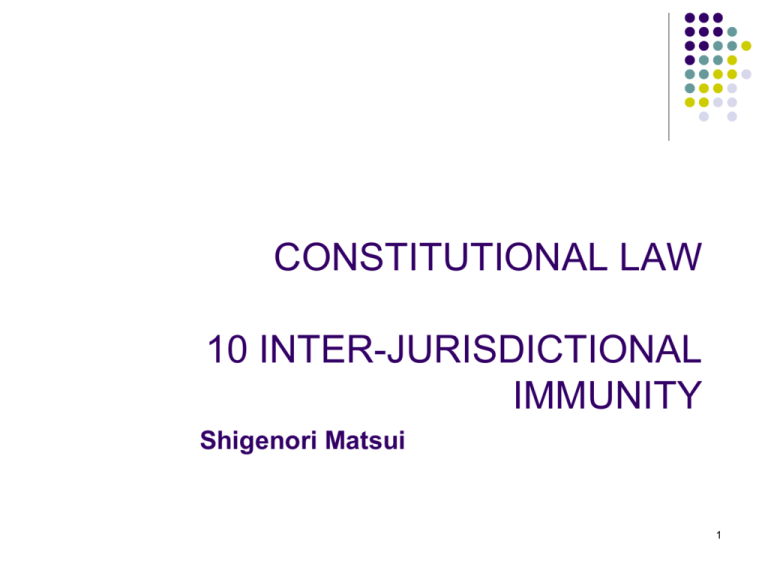
CONSTITUTIONAL LAW 10 INTER-JURISDICTIONAL IMMUNITY 1 Shigenori Matsui 1 INTRODUCTION There is a limit on the application of provincial law to federally incorporated companies or federal undertakings. The inter-jurisdictional immunity doctrine The applicability 2 2 I Inter-jurisdictional Immunity Doctrine Origin of the doctrine John Deere Plow Co. v. Wharton [1915] A.C. 330 Precluded the applicability of provincial law which impairs the status of the federally incorporated companies (sterilization test or impairment test) 3 3 The doctrine also came to be used to deny applicability of provincial law to federal undertakings as well. Toronto v. Bell Telephone Co. [1905] A.C. 52 4 The doctrine only denies applicability of the provincial law. The applicability of the provincial law is denied even when there is no conflicting federal law. 5 5 Asymmetrical application of the doctrine Theoretically speaking, inter-jurisdictional immunity doctrine could be used to give immunity to provincial undertaking from federal law. Yet, in reality, the doctrine has been used to give immunity to federal heads of power from provincial law. 6 6 The Supreme Court of Canada expanded the applicability of the doctrine McKay v. The Queen, [1965] federal election 7 7 Moreover, the Supreme Court of Canada intensified the doctrine: adoption of the affect test Commission du Salaire Minimum v. Bell Telephone Co of Canada (Bell Canada #1) [1966] 8 8 Commission de la Sante et de la Securite du travail v. Bell Canada, [1988] 9 9 Is the doctrine of inter-jurisdictional immunity available to all heads of the power of federal Parliament? 10 10 Is province totally precluded from regulating the subject matters of federal jurisdiction? Taxation on banks? Application of provincial environmental law Ontario v. Canadian Pacific [1995] 11 11 Attempt to readjust the doctrine Irwin Toy Ltd. v. Quebec, [1989] 12 12 II CURRENT FRAMEWORK Canadian Western Bank v. Alberta, [2007] 13 13 Inter-jurisdiction immunity doctrine is against the predominant tide of constitutional interpretation. Various problems with respect to broad application of the doctrine 14 14 The Supreme Court concluded that although the doctrine has a proper part to play in appropriate circumstances, it intends to make it clear that the court does not favour an intensive reliance on the doctrine, nor should it accept the invitation to turn it into a doctrine of first recourse in a division of powers dispute. Moreover, the Supreme Court held that law as it stood prior to Bell Canada better reflected our federal scheme.15 15 The future of the inter-jurisdictional immunity doctrine. The Supreme Court has Limited the applicability of the doctrine to preexisting cases and allowed no further expansion of its applicability Refused to consider the inter-jurisdictional immunity doctrine as a necessary inquiry Required the sterilization or impairment before denying applicability of the provincial law 16 16 British Columbia v. Lafarge Canada [2007] 17 III CONTROVERSIES OVER THE DOCTRINE Is the inter-jurisdictional immunity doctrine a legitimate doctrine or unnecessary doctrine? Is the doctrine against the pith and substance doctrine or is it against the predominant tide of constitutional interpretation on federalism in Canada? 18 18 Is it unnecessary to employ the doctrine to protect the federal undertakings? 19 19
